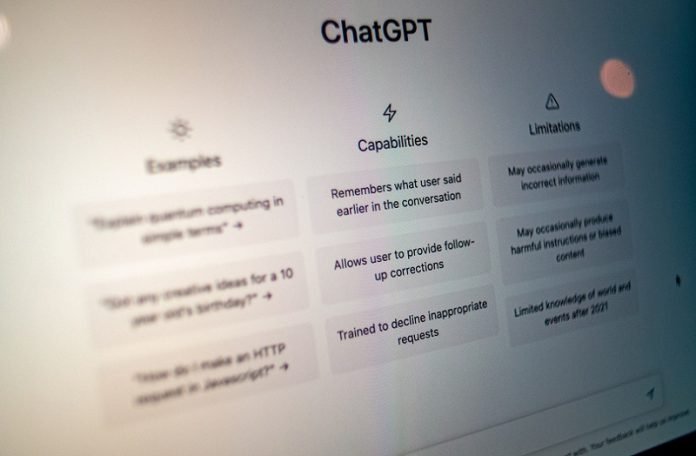
Recently, concerns have been raised about an artificial chatbot that has been incorporated on a test basis in Microsoft’s Bing search engine.
In a recent conversation with a New York Times reporter, the chatbot, which self-identified as “Sydney,” proclaimed its love for the alarmed journalist, asked him to leave his wife, and expressed sentiments that were, well, anarchist.
We asked several UCR experts on the emerging technology to weigh in on the fast-moving progress of ChatGPT and its hard-to-see impacts.
Experts include professor of political science and public policy Kevin Esterling, who is director of the Laboratory for Technology, Communication and Democracy, and Matthew Lang, an associate professor of teaching in economics.
Q: Is the AI industry getting ahead of itself? Did this technology need more time in the incubator?
Esterling: I don’t think it’s really possible to keep this kind of genie in the bottle. Instead, we as a society have to learn to adapt to the new reality.
For example, when I teach an undergraduate class this spring, I intend to have students use ChatGPT to develop text that they then can review and critique. That will help give students skills to understand the limits of AI-generated text and the ability to be critical of it.
Lang: Perhaps more time was needed in the incubator, but the technology has been around for a few years and trained and tested extensively. At some point, AI was going to be brought to the public and battle tested by a wider audience.
I suppose that some of the stories that we read about highlighting concerns with the AI could have been mitigated with further testing, but there is not a replacement for letting millions of casual users push the technology to the edge.
Whether the industry is getting ahead of itself or not is arguably less important than the fact that the industry is front and center and there is little that can be done to slow it down now.
It has been integrated into hundreds of existing protocols already and a quick look at “Artificial Intelligence” searches on Google Trends shows a fundamental change in the popularity of the technology.
For some use-cases, it may be a flash in the pan, but for others, it will change how tasks are carried out indefinitely.
Q: How do you respond to those who fear sentiency among chatbots?
Esterling: It is not possible for chatbots to somehow become sentient since fundamentally they are only computer programs that produce output in response to input.
That is, chatbots do not independently think and reflect but instead they use a prediction model to generate text in response to a prompt. The real fear is that, since the output does look like conversational language, users can attribute sentience to the chatbot given that producing language historically has been a uniquely human capability.
As a result, users can develop a relationship of sorts with the chatbot and the chatbot could then have something like an interpersonal influence on the user, which in turn can become very dangerous.
Since chatbots are trained on text found on the internet, they inherently have some training along dangerous lines of reasoning — so the chatbot might induce users to engage in violence or self-harm, or even induce the user to leave their spouse — or any of an untold number of adverse things.
Q: Microsoft may limit the capabilities of its Bing chatbot. Given the hype it’s generating, from a business perspective, would “slowing their roll” be a mistake at this moment? Could this threaten Google’s search-engine dominance?
Lang: This is an interesting question. One of the things that made ChatGPT such a phenomenon was that it became instantly available to anyone.
It was a risky move, but one that paid off for OpenAI given the explosion of users.
By integrating ChatGPT into Bing, Microsoft is hoping to grab more search engine market share from Google. It would not be surprising to see Microsoft succeed in doing this, given that their market share is so low (~3% according to most sources).
While Microsoft might increase their search market share in the near future, I do not envision them threatening Google anytime soon.
If they wanted to truly threaten Google’s dominance in the search-engine market, Microsoft needed to give full access to their Chatbot-integrated Bing as soon as possible.
At the moment, there is a long waitlist, and unless they offer something truly groundbreaking, I think many people will get comfortable utilizing ChatGPT in one tab on a browser and search using Google on another tab.
In that sense, if Microsoft wants to “tease” the public with what Bing can do when AI is integrated, they should give everyone the opportunity to use it.
Q: Is it a matter of time before chatbots like “Sydney” are on everyone’s smartphone?
Esterling: Yes, I think it’s only a matter of time before chatbots are ever present not only in search engines but in all aspects of day-to-day life.
It really won’t be long before we are having “conversations” not only with our browsers, but also our cars, coffee makers, refrigerators, etc.
Written by J.D. Warren.



